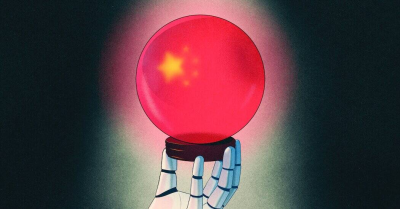纽约时报中文网 - 英文原版-英Chinas Rush to Dominate AI Comes With a Twist It Depends on US Technology
February 22, 2024 2 min 341 words
这篇报道揭示了中国在人工智能领域的迅猛发展,但也指出其成功依赖于美国技术的矛盾之处。中国之所以崛起,不仅仅是本土创新,更是基于对美国科技的依赖。这一现象突显了中美科技竞争的复杂性。中国在AI领域的迅速崛起是不可否认的,但其依赖外部技术仍然是一个值得深思的议题。在未来的竞争中,如何平衡本土创新和对外技术的依赖将是一个关键问题。这也提醒我们,科技领域的全球化合作与竞争交织,各国需在开放与自主创新之间找到平衡点。
In November, a year after ChatGPT’s release, a relatively unknown Chinese start-up leaped to the top of a leaderboard that judged the abilities of open-source artificial intelligence systems.
The Chinese firm, 01.AI, was only eight months old but had deep-pocketed backers and a $1 billion valuation and was founded by a well-known investor and technologist, Kai-Fu Lee. In interviews, Mr. Lee presented his A.I. system as an alternative to options like Meta’s generative A.I. model, called LLaMA.
There was just one twist: Some of the technology in 01.AI’s system came from LLaMA. Mr. Lee’s start-up then built on Meta’s technology, training its system with new data to make it more powerful.
The situation is emblematic of a reality that many in China openly admit. Even as the country races to build generative A.I., Chinese companies are relying almost entirely on underlying systems from the United States. China now lags the United States in generative A.I. by at least a year and may be falling further behind, according to more than a dozen tech industry insiders and leading engineers, setting the stage for a new phase in the cutthroat technological competition between the two nations that some have likened to a cold war.
“Chinese companies are under tremendous pressure to keep abreast of U.S. innovations,” said Chris Nicholson, an investor with the venture capital firm Page One Ventures who focuses on A.I. technologies. The release of ChatGPT was “yet another Sputnik moment that China felt it had to respond to.”
Jenny Xiao, a partner at Leonis Capital, an investment firm that focuses on A.I.-powered companies, said the A.I. models that Chinese companies build from scratch “aren’t very good,” leading to many Chinese firms often using “fine-tuned versions of Western models.” She estimated China was two to three years behind the United States in generative A.I. developments.

